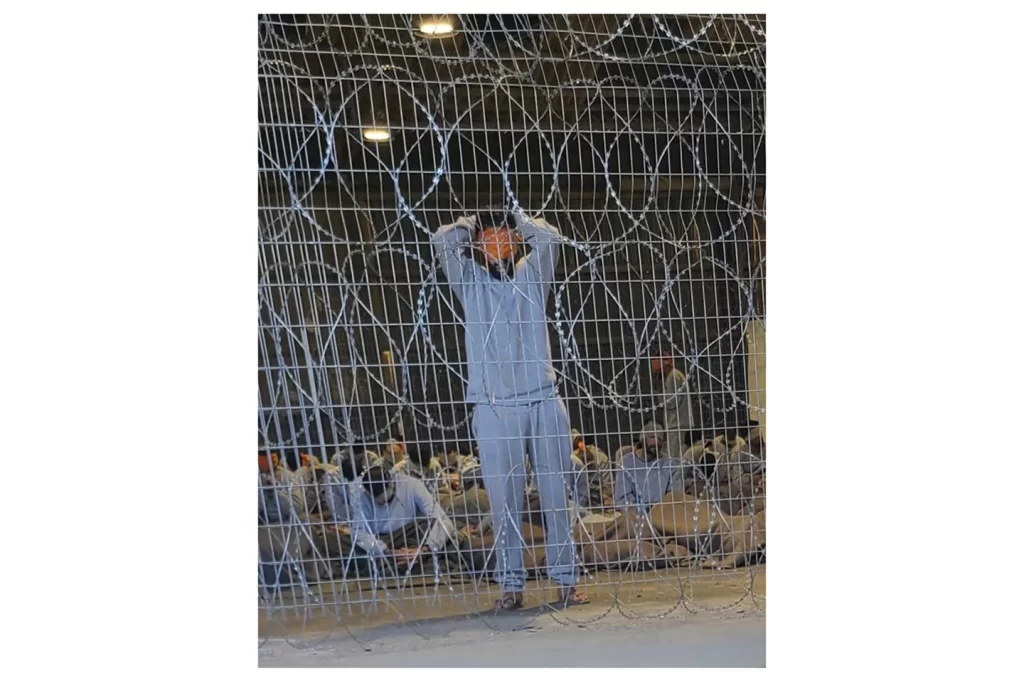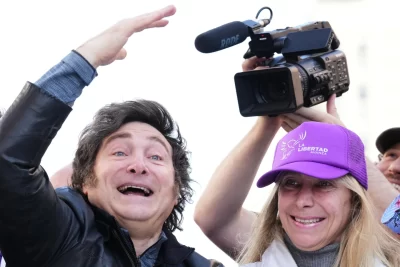
JERUSALEM— Patients lying shackled and blindfolded on more than a dozen beds inside a white tent in the desert. Surgeries performed without adequate painkillers. Doctors who remain anonymous.
These are some of the conditions at Israel’s only hospital dedicated to treating Palestinians detained by the military in the Gaza Strip, three people who have worked there told The Associated Press, confirming similar accounts from human rights groups.
While Israel says it detains only suspected militants, many patients have turned out to be non-combatants taken during raids, held without trial and eventually returned to war-torn Gaza.
Eight months into the Israel-Hamas war, accusations of inhumane treatment at the Sde Teiman military field hospital are on the rise, and the Israeli government is under growing pressure to shut it down. Rights groups and other critics say what began as a temporary place to hold and treat militants after Oct. 7 has morphed into a harsh detention center with too little accountability.
The military denies the allegations of inhumane treatment and says all detainees needing medical attention receive it.he hospital is near the city of Beersheba in southern Israel. It opened beside a detention center on a military base after the Oct. 7 Hamas attack on Israel because some civilian hospitals refused to treat wounded militants. Of the three workers interviewed by AP, two spoke on condition of anonymity because they feared government retribution and public rebuke.
“We are condemned by the left because we are not fulfilling ethical issues,” said Dr. Yoel Donchin, an anesthesiologist who has worked at Sde Teiman hospital since its earliest days and still works there. “We are condemned from the right because they think we are criminals for treating terrorists.”
The military this week said it formed a committee to investigate detention center conditions, but it was unclear if that included the hospital. Next week Israel’s highest court is set to hear arguments from human rights groups seeking to shut it down.
Israel has not granted journalists or the International Committee of the Red Cross access to the Sde Teiman facilities. Israel has detained some 4,000 Palestinians since Oct. 7, according to official figures, though roughly 1,500 were released after the military determined they were not affiliated with Hamas. Israeli human rights groups say the majority of detainees have at some point passed through Sde Teiman, the country’s largest detention center. Doctors there say they have treated many who appeared to be non-combatants.
“Now we have patients that are not so young, sick patients with diabetes and high blood pressure,” said Donchin, the anesthesiologist.
A soldier who worked at the hospital recounted an elderly man who underwent surgery on his leg without pain medication. “He was screaming and shaking,” said the soldier.
Between medical treatments, the soldier said patients were housed in the detention center, where they were exposed to squalid conditions and their wounds often developed infections. There was a separate area where older people slept on thin mattresses under floodlights, and a putrid smell hung in the air, he said.
The military said in a statement that all detainees are “reasonably suspected of being involved in terrorist activity.” It said they receive check-ups upon arrival and are transferred to the hospital when they require more serious treatment.
A medical worker who saw patients at the facility in the winter recounted teaching hospital workers how to wash wounds.
Donchin, who largely defended the facility against allegations of mistreatment but was critical of some of its practices, said most patients are diapered and not allowed to use the bathroom, shackled around their arms and legs and blindfolded.
“Their eyes are covered all the time. I don’t know what the security reason for this is,” he said.
The military disputed the accounts provided to AP, saying patients were handcuffed “in cases where the security risk requires it” and removed when they caused injury. Patients are rarely diapered, it said.
Dr. Michael Barilan, a professor at the Tel Aviv University Medical School who said he has spoken with over 15 hospital staff, disputed accounts of medical negligence. He said doctors are doing their best under difficult circumstances, and that the blindfolds originated out of a “fear (patients) would retaliate against those taking care of them.”
Days after Oct. 7, roughly 100 Israelis clashed with police outside one of the country’s main hospitals in response to false rumors it was treating a militant.
In the aftermath, some hospitals refused to treat detainees, fearful that doing so could endanger staff and disrupt operations. They were already overwhelmed by people wounded during the Hamas attack and expecting casualties to rise from an impending ground invasion.




